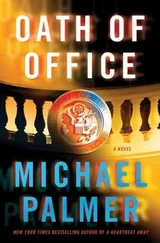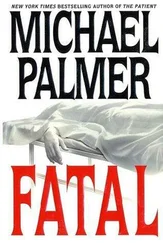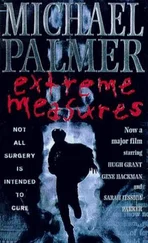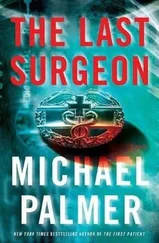What is this virus? Ellis typed.
WRX3883.
What is that?
Ask your president. He’ll know. He made it.
Interesting, Ellis thought. But the exchange proved nothing. Were she to confront Allaire with specifics about the virus, it might only confirm that she had taken his bait. She needed more certainty than that to proceed.
Ellis typed: The president has brought in a virologist and tasked him to develop an antiviral drug. He may succeed before I get your bill passed, in which case, you have no leverage.
She wondered how Allaire, assuming he was behind this sham, would respond.
The virologist is dead. Killed when we blew up his transport helicopter. You have no other option.
Not only was that an interesting response, but a most unexpected one as well. Ellis knew all about the helicopter disaster. The explosion shook the chamber walls and incited some panic among an already jittery group.
“Nothing about the explosion will derail our plans for a rapid resolution to this challenge,” Allaire had told a meeting of the leaders of Congress.
Ellis wouldn’t believe him until she had questioned Sean O’Neil. It took a little prodding, but finally the agent revealed that the explosion had killed a pilot, copilot, and a decoy of the virologist who had been chosen to develop an effective treatment for the virus that was threatening them.
Clearly, the president had nothing. His iron-fisted quarantine was born out of panic, which meant that Harlan Mackey’s death was no accident.
Ellis tensed. This was Genesis who was contacting her. She felt absolutely certain of it. If they were to provide her with the cure, she would assume the stature of a savior.
Destiny.
Ellis studied the sheet of demands again. They were ridiculous—over the top. Under normal circumstances, any lawmaker championing a bill with these provisions would be committing political suicide. But these were hardly normal circumstances.
Genesis had organized the legislative demands into three broad categories: national security, immigrant rights, and privacy.
The national security mandates called for the immediate cessation of unchecked spying on ordinary Americans, as well as the abolishment of the Patriot Act, and a rewrite of the ECPA, the Electronic Communications Privacy Act. The impact of such a bill would be profound. It would make it illegal to monitor communication on the Internet. Wiretapping, in all but the most extreme cases, would be abolished. And the legislation currently in committee to establish a national ID program would be scrapped.
Who are these people? Ellis wondered again.
In addition to the security demands, they called for the dismantling of the immigration and naturalization service, ending all discrimination against immigrants, along with sweeping changes that would essentially erase our borders with Mexico and Canada. They also insisted on the installation of consumer privacy protections, which would make surveillance camera footage a civil rights violation unless it was related to preventing robbery.
This was truly toxic legislation.
But what we have all been exposed to was equally toxic as well.
These demands were coming from Genesis, Ellis concluded. And although she did not personally support any of their proposals, given the circumstances and the stakes she could champion the effort nonetheless. Flexibility was at the very heart of good politics. Once she was sworn in as president, the country would see only a hero—a hero who had done what their elected leader could not.
Even if I were to succeed in passing this legislation, Ellis typed, you could not meet your obligation. I am not the POTUS and therefore, not elected to lead the country, or sign this bill into law.
You are third in the succession order,came the reply. With our help, there will be no one for you to succeed.
Ellis felt another jolt of adrenaline. Her mind danced with images of her taking the presidential oath—images of such vivid and glorious detail that she believed, for just a moment, they had actually occurred. Genesis sounded as if they had the resources to make it happen. She had to take the ride. There was, however, one glaring problem that still needed to be addressed.
It must be me who secures the treatment, she typed.
The exchange that followed occurred in rapid succession.
Genesis: Your job is to get the legislation passed. We’ll provide the drug. You can decide how to explain where it came from.
Ellis: But this will take work. What if Allaire’s virologist succeeds before my legislative work concludes.
Genesis: We told you, the virologist is dead. We saw to that.
Ellis: That is incorrect. He is very much alive. You succeeded in blowing up a helicopter. But with a decoy on board, not him.
Genesis: Interesting. In that case, we know the man’s location. The matter will be resolved. And you will become the president. Bank on it.
DAY 4
1:30 P.M. (CST)
Matt Fink had been a pilot in the South African Air Force before he became a mercenary, opting for more close-up work and much more money. Now, he banked a sharp right turn, extended the Learjet 40XR’s landing gear, and then rechecked his instrument panel for any needed course corrections. He slowed to 140 knots and extended the wing flaps to decrease the aircraft’s stalling speed. The Lear was a joy to fly compared to the stiffer JAS Gripen fighter he had piloted in the service.
Clear skies and no strong crosswinds made for perfect flying, and a bright Kansas sky gave Fink a clear view of the runway. He repositioned his headset microphone to continue the arrival sequence with air traffic control at the Garden City Regional Airport.
“Garden City Tower, LXJ183 is eight miles out entering a left downwind for the visual three-two,” Fink said.
“LXJ183 is cleared to land runway seventeen, winds three-four-zero at five to ten.”
“Cleared to land, LXJ183,” Fink repeated the instruction.
The wheels touched down with barely a bump and Alex Ramirez, who had passed the flight from Baltimore in the copilot’s seat, stood with the aircraft still in motion.
“I’ll head back and get the weapons and gear ready,” he said.
“The Cessna’s waiting for us,” Fink answered. “I want to be airborne within an hour.”
The two men had worked together for years, and had handpicked the team for the Genesis job. Ramirez, who’d had his face cut nearly in two in Rwanda, was sharp and dependable, and the absolute best with any sort of electronics, or any kind of garrote. He was also a vicious infighter, who had disposed of the Capitol security guard Peter Tannen quietly and efficiently, thus earning himself this trip to Kansas.
Fink taxied to a smooth stop at the location assigned to him by the controller. Then he powered the engines down and confirmed the cockpit radio was off as well. Cain expected him to check in, and that conversation was not one he could afford to inadvertently broadcast to Garden City’s air traffic tower.
He made contact with his employer through a high-tech push-button phone.
Читать дальше












